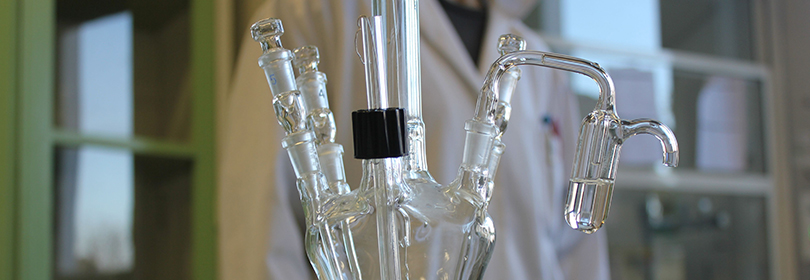
Reducing limits of detection and improving sensitivity is a never-ending quest for the analytical chemist. Part of this task lies with sample preparation and analyte preconcentration. Solid phase and liquid-liquid extractions are two-step procedures based on species partitioning governed on hydrophobicity/ hydrophilicity balance, complexation, pH, or ion-pairing. However, the extraction of hydrophilic compounds such as metformin, an antidiabetic drugs (diabetes type II), remains a challenge. A new sample preparation method is proposed for the extraction of pharmaceutical compounds (Metformin, Phenyl biguanide, and Phenformin) of varied hydrophilicity, dissolved in an aqueous sample.1 When in contact with an organic phase, an interfacial potential is imposed by the presence of an ion, tetramethylammonium (TMA+), common to each phase. The interfacial potential difference drives the transfer of ionic analytes across the interface and allows it to reach up to nearly 100% extraction efficiency and a 60-fold enrichment factor in optimized extraction conditions as determined by HPLC analysis.
We investigated here the influence of a variety of experimental parameters (interfacial potential difference, common ion and analyte concentrations, pH, and extraction time) on the extraction yield of three cationic analytes. The extraction yield and sample enrichment were then characterized by High Performance Liquid Chromatography equipped with a UV-visible spectrometer. Our experiments showed a correlation between the extraction yield and the potential difference applied at the interface, suggesting that the cations extraction is governed by electrochemistry. Based on these experimental parameters, we elucidated the extraction mechanism, reaching optimal extraction yield and sample enrichment.Contact
Envoyer un mail


